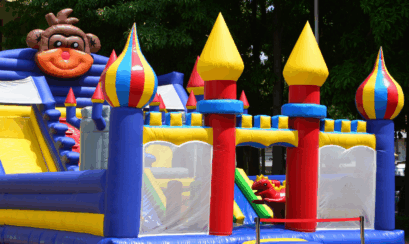Peter Reurich enjoys taking his best friend, Boofhead, to the local RSL. Boofhead is Mr Reurich’s assistance dog. He has a calming effect on Mr Reurich, who suffers from a range of psychological disabilities including social communication disorder, paranoid personality disorder and attention-deficit/hyperactivity disorder.
In August 2018, Boofhead was denied entry into the RSL. Claiming he was dirty, smelly and unhygienic, the club’s representatives did not believe that Boofhead had the rights of an assistance dog, as he wasn’t a guide dog.
Having difficulty relating to people and a propensity to become over-anxious and argumentative when separated from Boofhead, Mr Reurich argued against the barring of his dog and was subsequently also banned from the club.
Case taken to Federal Court as human rights matter
Taking the RSL Club to court, Mr Reurich argued that Boofhead gave him a freedom he otherwise wouldn’t have. The court also heard from psychologists that Mr Reurich suffers from social communication disorder that can manifest as anxiety, depression and paranoia.
Mr Reurich’s psychologist stated that Boofhead softened Mr Reurich’s demeanour, reduced his anxiety and helped him connect with people. Mr Reurich had obtained a licence and a special trainee service dog jacket for Boofhead and was training him to pass the required public access test.
Assistance animals now support people with various disabilities
According to the Australian Human Rights Commission, while assistance animals have traditionally been recognised as guide dogs for the vision impaired, this understanding has now evolved to include a variety of animals supporting a range of people with various disabilities.
The Office of Local Government explains that assistance animals are trained to support people with a disability and help them participate in personal and public activities with more confidence and independence.
Unlawful to discriminate against a person because of their disability
Under section 9 of the Disability Discrimination Act 1992, assistance animals are not pets, but highly trained disability support services. They not only help the blind or deaf, but also those with medical or psychological disabilities.
Current legislation states that a person with a disability is entitled to be accompanied by an assistance dog or animal, when using them for a genuine reason, in public places and on public transport. Assistance animals must be trained and accredited by a recognised animal training organisation and must meet standards of behaviour and hygiene suitable for a public place.
Section 23 of the Disability Discrimination Act says it is unlawful to discriminate against a person on the grounds of their disability.
Judge rules in favour of assistance dog and his owner
The judge ruled in favour of Mr Reurich and ordered the RSL Club to pay him $16,000 in compensation, plus interest, for his pain and suffering. (See Reurich v Club Jervis Bay Ltd [2018] FCA 1220.)
Staff training on legal rights of assistance animals is imperative
Employers would be wise to get legal advice regarding service animals and train their staff accordingly.
Discriminating against people with a disability by denying entry to their assistance animal can lead to discrimination charges and prove to be very costly for the business.














